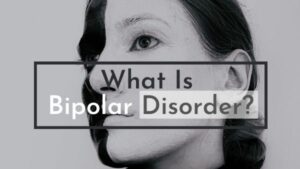Bipolar disorder can be a challenge to deal with, both for the person who is suffering from it and for their loved ones. If you are in a relationship with someone who has bipolar disorder, you need to be aware of the unhealthy signs of bipolar and relationships. Only then, you can end up relationships and move further. So keep reading on for a clear understanding of bipolar and relationships!
Contents
What Is Bipolar?
 Bipolar is a mental illness that is characterized by extreme mood swings. These mood swings can be very severe and can last for long periods of time. Bipolar disorder can make it very difficult to maintain healthy relationships. Because this is such a common problem, there are a number of resources available to help people with bipolar disorder.
Bipolar is a mental illness that is characterized by extreme mood swings. These mood swings can be very severe and can last for long periods of time. Bipolar disorder can make it very difficult to maintain healthy relationships. Because this is such a common problem, there are a number of resources available to help people with bipolar disorder.
Generally, there are two types of bipolar disorder: type I and type II. Type I is characterized by manic episodes that last for at least seven days. These episodes can be very severe and can include hallucinations and delusions. Type II is characterized by both manic and depressive episodes. These episodes can last for at least two weeks.
Bipolar disorder can be a very difficult illness to live with. And, if you are in a relationship with someone who has bipolar disorder, it may be even more difficult. There are a number of things you can do to help your partner, but it is important to remember that you cannot change or cure their bipolar disorder.
If you are in a relationship with someone with bipolar disorder, the most important thing you can do is to be supportive and understanding. But if you are seeing no change or improvement, you should end the relationship.
Are Bipolar And Relationships Linked?
Sometimes there’s an ebb and flow to bipolar and relationships. When one is up, the other is down. But sometimes, the relationship itself can be the trigger for a manic or depressive episode. this can happen due to the stress of dealing with a partner who is bipolar.
Bipolar relationships are believed to share a bidirectional link. This means that not only can a person with bipolar disorder cause stress in a relationship, but the reverse is true as well. The partner of a person with bipolar disorder can also trigger episodes by reacting to the symptoms in an unhelpful way.
For example, if a person with bipolar disorder is going through a manic episode, their partner may become frustrated with them. This can lead to arguments, which can in turn trigger a depressive episode. Alternatively, if a person with bipolar disorder is going through a depressive episode, their partner may try to “cheer them up” or tell them to “snap out of it.”
This can be interpreted as invalidating the person’s feelings, which can lead to further distress. In either case, the result is a negative feedback loop in which the symptoms of bipolar disorder are exacerbated by the relationship itself.
Therefore, if you’re in a relationship with someone who has bipolar disorder, it’s important to be aware of the potential for this feedback loop. There are several things you can do to prevent it from happening, or at least minimize its effects.
Can A Bipolar Person Love You?
 This is a common question that people with bipolar disorder face. After all, if you can’t trust yourself, how can you trust anyone else? The answer is complicated. People with bipolar disorder are capable of love. However, they may have difficulty expressing it or showing it in ways that are traditionally seen as “normal.”
This is a common question that people with bipolar disorder face. After all, if you can’t trust yourself, how can you trust anyone else? The answer is complicated. People with bipolar disorder are capable of love. However, they may have difficulty expressing it or showing it in ways that are traditionally seen as “normal.”
For instance, if you are in a relationship with someone who is bipolar, they may exhibit what is known as “mixed states.” This means that they may swing from one extreme emotion to another. One minute they may be happy and in love with you, and the next minute they may be angry and pushing you away.
However, this doesn’t mean that their feelings are fading away or that they don’t truly love you. In-depth, each person is different, so it’s important to communicate with your partner about how they’re feeling and what their specific needs are. Thus, communicate with them and decide whether they really are capable of handling a relationship at this time in their lives or not.
How Does Bipolar Affect Your Relationship?
If you have bipolar disorder, you may sometimes feel like you’re on top of the world. Your moods can be extreme, and your behaviors may be impulsive and erratic. These things can impact your relationship to an extent. Some common consequences that you may have with bipolar disorder are as follows:
Difficulty communication
This is an essential part of any relationship, but it can be especially challenging if you have bipolar disorder. When you’re in a manic phase, you may be more likely to speak without thinking first. This can lead to fights with your partner or saying hurtful things that you don’t actually mean. On the other hand, when you’re in a depressive phase, you may not feel like talking at all. This can make it hard for your partner to understand what you’re going through and make them feel shut out.
Unpredictability
Another common consequence of bipolar disorder is unpredictability. Your moods can change quickly and without warning. This can be confusing and frustrating for your partner, especially if they don’t understand your condition. You may withdraw from your partner without explanation or become agitated and argumentative for no apparent reason.
Increased irritability
It is common for people with bipolar disorder and relationships to have increased irritability. This can manifest in a number of ways, such as snapping at your partner or being easily annoyed. If you find yourself getting irritated more easily than usual, it may be a sign that your relationship is not healthy.
Lack of intimacy
 People with bipolar disorder often struggle with intimacy issues. This can make it difficult to sustain healthy, long-term relationships. because intimacy makes them feel exposed and vulnerable. If you’re in a relationship with someone with bipolar disorder, you may notice that they withdraw from physical and emotional intimacy. Further with a lack of intimacy, you may feel like:
People with bipolar disorder often struggle with intimacy issues. This can make it difficult to sustain healthy, long-term relationships. because intimacy makes them feel exposed and vulnerable. If you’re in a relationship with someone with bipolar disorder, you may notice that they withdraw from physical and emotional intimacy. Further with a lack of intimacy, you may feel like:
- Isolated and alone
- Unloved and unimportant
- Rejected
- Disconnected from your partner
So overall, these are some ways through which bipolar disorder affects relationships. In fact, it can even end healthy relationships. If you’re in a relationship with someone with bipolar disorder, it’s important to be supportive and understanding.
However, you also need to take care of yourself. Make sure to set boundaries and communicate your needs to your partner. Seek professional help if necessary.
Unhealthy Signs Of Bipolar In Relationships
There are unhealthy signs of bipolar in relationships that can be hard to spot, but if you know what to look for, they can be easier to identify. Here are some unhealthy signs of bipolar in relationships:
One is happy, the other is sad
In a relationship, it is normal for both partners to experience a range of emotions. However, when one partner is consistently happy while the other is consistently sad, it could be an unhealthy sign of bipolar in the relationship. Because this is about unity and commonality, not just one person is happy and the other is miserable.
One partner is always in control
In a healthy relationship, both partners should feel like they have an equal say and are able to openly communicate with each other. However, in a relationship where one partner is always in control, it can be an unhealthy sign of bipolar. If you find yourself always being the one to make decisions or having to put up with your partner’s demands, it may be time to rethink the relationship.
Putting down the other
Another sign of an unhealthy bipolar relationship is when one partner is constantly putting down the other. This can manifest in many ways, such as belittling their accomplishments, mocking their goals, or making fun of their interests. This behavior is a form of emotional abuse, and it can be just as damaging as physical abuse.
Disrespecting each other’s boundaries
It is so important in any relationship to have boundaries. We all have different comfort levels, different needs, and different ways of showing love. When these things are disrespected, it can lead to major conflict. If you find that your partner consistently ignores your reasonable requests or violates your personal space, it may be time to consider ending the relationship.
Lying to each other
This might sound like an obvious one, but it’s not always easy to spot when someone with bipolar disorder is lying. The symptoms of mania can include inflated self-esteem and grandiose ideas, which might make the person seem more convincing. If you’re starting to doubt your partner’s honesty, it’s important to have a conversation about it.
Allowing toxic behavior
 Toxic behavior is often a cornerstone of unhealthy relationships. If your partner is regularly putting you down, making you feel bad about yourself, or otherwise behaving in a way that is harmful to your mental health, it may be time to consider ending the relationship.
Toxic behavior is often a cornerstone of unhealthy relationships. If your partner is regularly putting you down, making you feel bad about yourself, or otherwise behaving in a way that is harmful to your mental health, it may be time to consider ending the relationship.
These are all unhealthy relationship behaviors. If you find yourself in a relationship that is characterized by these symptoms. You need to be aware of the signs that you are in an unhealthy relationship. Also, whatever the reason, if you do not feel safe in your relationship, it is time to leave.
How To End This?
It might not be easy, but you need to be honest with yourself first. If you’re in a relationship that’s not good for your mental health, it’s time to take a hard look at the situation and make a change. Here are some steps you can take to end an unhealthy relationship:
Identify what is not working
This can be difficult, but it’s important, to be honest with yourself about what isn’t working in your relationship. If you’re constantly fighting, if you don’t feel supported, or if you simply don’t feel happy, those are all signs that something is wrong. For example, maybe you’re in a relationship that’s full of drama. Maybe your partner is always putting you down, or maybe you don’t feel like you can be yourself.
Talk to your partner
Once you’ve identified the problems in your relationship, it’s time to talk to your partner about them. This can be a difficult conversation, but it’s important to communicate your needs and wants. If your partner is unwilling to listen or try to make changes, then that’s a sign that the relationship isn’t worth saving. Because when you discuss the problems in your relationship, you should be able to come up with a plan to fix them. If you can’t, then it’s time to move on.
Set boundaries
If you’ve tried to talk to your partner and the relationship is still not working, it’s time to set some boundaries. This might mean setting some rules, such as no more verbal abuse or no more fighting. Or it might mean spending less time with your partner. Whatever you do, make sure you’re taking care of yourself first and foremost.
Make a decision
After you’ve had a discussion with your partner, it’s time to make a decision about the future of your relationship. If you decide that it’s time to end things, do so with kindness and respect. It might be difficult, but breaking up is sometimes the best thing you can do for yourself. For example, you can say “I need some time to figure out what I want. I hope you understand.”
Give yourself time to heal
After a breakup, it’s important to give yourself time to heal. This might mean taking some time for yourself, spending time with friends and family, or doing things that make you happy. Don’t try to jump into another relationship right away. Take the time you need to feel better before moving on. It might be difficult, but ending an unhealthy relationship can be the best thing you do for yourself. ***
Seek out support
 Sometimes it’s difficult to see what’s wrong in a relationship when you’re in the thick of it. If you’re not sure whether your relationship is healthy or unhealthy, seek out a support group or counselor. Talking to someone who is objective can help you see the relationship more clearly. This way they can also advise you on how to best proceed.
Sometimes it’s difficult to see what’s wrong in a relationship when you’re in the thick of it. If you’re not sure whether your relationship is healthy or unhealthy, seek out a support group or counselor. Talking to someone who is objective can help you see the relationship more clearly. This way they can also advise you on how to best proceed.
Ending an unhealthy relationship is never easy, but it’s important to do what’s best for you. And remember that every person deserves to be in a healthy, loving relationship. If you need help, don’t hesitate to seek out support. Otherwise, this can be a very rewarding experience that helps you grow in many ways.
Conclusion
To conclude, bipolar and relationships together can be difficult. However, if you are proactive about your mental health and get help when needed, you can have a healthy and happy relationship. However, if your partner does not want to seek help or support you, it may be time to end the relationship. Because everyone wants and deserves to be happy and healthy in their relationships.
If you or someone you know is in an unhealthy relationship, please reach out for help. There are many resources available to assist you, just be active and understand when to take action!
For more tips and guidance, you can reach out to Therapy Mantra. The team of professional counselors and expert therapists is more than happy to help you in your journey to recovery. Contact us today to learn more about our services. You can also book an online therapy session or download our free Android or iOS app.


